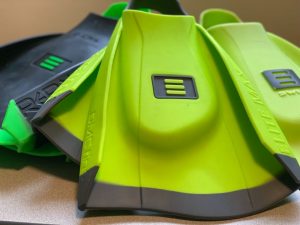
7 Best Swim Snorkels for Better Technique and Faster Swimming
Ready to throw down on a new swimmer’s snorkel? Here are reviews of the best swim snorkels for lap swimming.

Is your pool or hot tub running up big electricity bills? Keep your pool clean and cut costs with our favorite pool timers for every budget.
There’s a lot of reasons to love your swimming pool.
Cannonballs, keeping cool during long summer days, and splashing around with family and friends are some that come to mind for me.
But you know what’s not so great?
The electricity bills that come along with running your pool pump and filter.
The thing is, you can’t not use these bad boys as they are a critical part of keeping your pool clear, clean, and healthy for swimming.
While you can always turn them off yourself to cut down on electricity usage, there is a better way that doesn’t require any reminders (because let’s be honest, there will be times you forget to turn them off).
This is where an automatic pool timer steps in.
These simple little gadgets ensure that your pool equipment turns off each day while also allowing the pump and filter to run for optimal stretches of time, keeping your pool swimmable and clean.
And the best part?
They are the ultimate set-it-and-forget-it tool for your swimming pool.
Here’s a look at the best pool timers on the market for every kind of swim pool, whether you are working with an above-ground pool, an inground pool, or something larger.
Let’s dive right in.
For smaller pools and pool-owners on a budget, this heavy-duty Woods pool timer packs a lot of features for a small price tag (less than $20—check Amazon for current pricing and availability).
This little unit—I will admit that the cord could be longer—has a 7-day programmable timer and three timing programs (digital timer, random setting, and countdown). You can set the timer to run longer on weekends when the pool is getting more use, for example.
It also has a self-charging backup feature in the event of a power surge or outage, retaining your timer settings so that you don’t have to redo everything.
And of course, the unit is built in a weatherproof casing to protect it from the elements.
Key features: User-friendly, easy to install (no mounting required), self-charging backup feature, affordable at less than $20.
The Honeywell Aube is a workhorse as a pool timer, with both 7- and 14-day programming, a rechargeable battery inside the case, and because it is a digital unit, you can set programs down to the minute.
Reviewers love the simple setup, the “old school” feel of the timer (no unnecessary complexity or programming skills required to set), and a secure heavy plastic box for housing the pool timer.
The timer also has a temporary bypass that allows you to quickly override the settings without disrupting programming.
Honeywell is well-known for making industrial-grade cases and timers for homes, and the Aube is an excellent choice for pool owners at an affordable price (around $80—check Amazon for current pricing and shipping options).
Key features: Choice of 120 or 240 V, lockable case (lock sold separately), simple timer, lots of program options, rechargeable battery in the case.
Another heavy-duty box comes to us from the folks over at General Electric.
Housed in a rain and corrosion proof metal box (that’s also tamper-proof), this timer offers ultimate flexibility and options for the backyard pool owner.
The digital timer automatically detects the voltage of your pool pump and filter (120, 240, or 277 VAC) and features up to nine different programming options, including 7-day and daily cycles.
The pool timer has a battery back-up (rechargeable battery included), is super affordable considering its nearly over-built specifications (retails for around $75—check Amazon for current pricing), and can be locked to prevent tampering.
Key features: Built for heavy-duty use, digital timer for precise programming, waterproofed casing, automatic voltage detector.
⭐ Best “no-frills” pool timer
For pool owners who don’t want to mess around with complicated timer settings, and just want something super simple that they can set and forget, the Intermatic Heavy-Duty Outdoor timer is perfect.
Setting the timer for your swim pool is simple enough with this thing: place a green pin on the timer for where you would like power to turn on and a red pin for when the pump and filter should turn off. That’s it.
While you don’t get the same seemingly limitless (and often overwhelming) options that come with digital swim pool timers, I love the simplicity of this device and ease of installation.
The timer comes with two sets of pins, a waterproof casing, and a three-prong plug to power the timer.
Key features: Best low-cost option, super simple to use.
⭐ Best fancy-pants pool timer
Regular household items have gone full tech in recent years, and the GE Z-Wave Plus is an excellent example of this.
Like the other GE pool timer on this list, the GE Z-Wave comes in a heavy-duty metal case that is weather-proofed and can be locked to eliminate tampering.
But unlike the other GE timer, this swimming pool timer has a little Wi-Fi antenna on the top that allows you to control the timer via a SmartThings hub and app, which is obviously pretty neat-o. Which means you can program and override settings from your smartphone.
The ability to run your pool pump from your phone has some obvious benefits: whenever you shock or treat the pool and need to run the pump for longer, you can turn it on, even if you have left the house. You can also monitor energy usage, which is something most pool timers cannot claim to do.
The GE Z-Wave, with its smart features, app, and ultimate customization, is appropriately the most expensive pool timer on this list, at around $155 (check Amazon for current pricing and availability).
But let’s not mince words, this thing as a pool timer absolutely kicks all of the butts when it comes to flexibility and convenience.
Key features: Best pool timer for more “techy” people, can use anywhere you have WiFi, ultimate flexibility with programming.
There are a few key decision-making features that we looked for when hunting through the available pool timers on the market.
Some of them are obvious, like price, but there were also specific things that helped narrow down the list.
⭐ Load and current.
This is the most important feature you should be looking for when choosing a timer for your swimming pool.
Ultimately, a timer needs to be able to handle the current required to power your pool.
Whichever pool timer you choose, make sure that it is capable to run your pool pump. Double-check with the voltage of your pump and correspondingly narrow down the list of timers.
⭐ Programming flexibility.
Being able to choose when to run your pump is an excellent way to save a butt-ton of money on your energy bills.
Some regions and states have higher energy costs during peak periods, like the middle of the day.
While it’s advisable to run your pool when it’s being used and when it’s sunny (to help water move and be cleaned), there will be times when you can program the timer to run the pump and filter overnight or when the pool isn’t be used.
The right timer for your pool will line up with the flexibility you need for running the pump and filter.
⭐ Casing.
Here’s a super obvious statement—pools are wet!
Pool timers, especially if they are located next to or near the pool, need to be housed in a waterproof or at least water-resistant casing to keep it protected from pool water and inclement weather.
Other safety features that our favorite pool timers feature include cables that are properly insulated and a locking case to prevent tampering.
⭐ Types of pool timers.
There are two major groups of pool timers on the market that we included in this round-up.
Analog timers. Mechanical or analog pool timers are like your old-school watch that is powered by springs and gears. They are an inexpensive option and generally have basic setting functions. If you are looking for something simple, analog pool timers are your best bet.
Digital timers. These are the fancy-pants, digital options that open up a whole heap of features, programming options, displays, and more. The display ranges from an LCD screen to an app on your smartphone that allows you to control the running duration of a pool timer.
If running your pump and filter is good for the pool, why not just run it 24/7?
Welp, because it’s not necessary.
As you will see below, using a pool timer to set it to run the filter for specific chunks of time versus all day and all night, will save you a ton of money on energy bills.
Additionally, running the filtration system non-stop will cause inevitable wear and tear on your pump that can drastically shorten the lifespan of your pool equipment.
The good news is pool timers are a tool that doesn’t require a ton of upkeep or work. Once it is properly set up, you can generally leave it be and get back to enjoying your pool!
How much you will save in terms of electricity depends on how much you pay per kilowatt.
Prices vary wildly by region. Residents in Georgia paid 13.55 cents per kilowatt in July 2021 while residents of Hawaii paid over 33 cents.
For the sake of our example, we will look at a 1hp pool pump, which soaks up 1.72 kilowatts per hour (kWh). And we will run our example pool pump in California**, which in the summer of 2021 was charging 22.45 cents per kWh [1].
Running the pump for 24 hours would cost $5.38 per day. Which might not seem like a lot until you average it out over time. In just three months, this would ring up a bill of almost $500!
Using a timer, you could set the pump to run for 8 hours a day, which is usually enough to fully cycle all of the water in the pool. Daily, your usage would cost $1.79. Over that same three-month span, the bill would be $163.43.
This is a simplified example, and how much money you will save depends on the horsepower of your pool pump and local electricity rates.
But even with this basic example you quickly see that the cost savings would be in excess of $300, which would more than cover the costs of even the most feature-rich swimming pool timers on the market.
** California is on the high side when it comes to electricity bills, but used for this example for their proportionally large number of backyard pools. The national average is 13.90 cents per kWh.
I’ve put together lots of other comprehensive guides on pools and pool maintenance on this website that you can use to arm yourself.
Below are some of the more popular ones.
6 Best Above Ground Pool Filters. A solid pool filter keeps the water clean and safe, so that you can spend more time enjoying the water than cleaning it. Here’s a look at the top-performing pool filters for every kind of pool.
6 Best Pool Pumps for Every Kind of Swimming Pool. Your best friend for clean and clear pool water is the pool pump. Here is a look at the best pool pumps for every kind of swimming pool.
The Best Variable Speed Pumps for Backyard Swim Pools. Another way to cut down on hefty electricity bills is by replacing your standard pool pump with a cost-saving variable speed pool pump. Here’s a look at the best ones on the market.
5 Best Saltwater Chlorinators for Crystal-Clear Pools and Spas. Find out how saltwater chlorinators work, what they can do for you, and the right one to choose if you’re on the market for a new pool/spa cleaning system.
Subscribe to the YourSwimLog.com newsletter and get tips and advice on how to swim faster every weekday morning, straight to your inbox.
Join 33,000+ swimmers, coaches, and swim parents learning what it takes to swim like a boss.
Unsubscribe anytime. Email will never be shared or sold.

Olivier Poirier-Leroy Olivier Poirier-Leroy is the founder of YourSwimLog.com. He is an author, former national level swimmer, two-time Olympic Trials qualifier, and swim coach.

Ready to throw down on a new swimmer’s snorkel? Here are reviews of the best swim snorkels for lap swimming.

Looking to get some new swim gear on a budget? Shop the best Black Friday deals for swimmers in this exclusive guide.

Looking for the best swimming app to maximize your time and effort in the water? Here’s a look at the top swim apps for conquering your swim workouts.

Wondering how often you should be testing the water in your pool or spa? Here’s a detailed look at how frequently you should test your pool. Your swimming pool and spa relies on being properly balanced to keep the water clean and safe for swimming. As a pool owner, you

Fed up with the effects and smell of chlorine in your hair after swimming? Here is how to remove chlorine from your hair once and for all.

The DMC Elite fins are high-performance training fins for competitive swimmers. Here’s a review of why these fins are flat-out awesome.

LANE 6 PUBLISHING © 2012-2024 · PRIVACY POLICY · RETURN POLICY · TERMS OF SERVICE · AFFILIATE DISCLOSURE